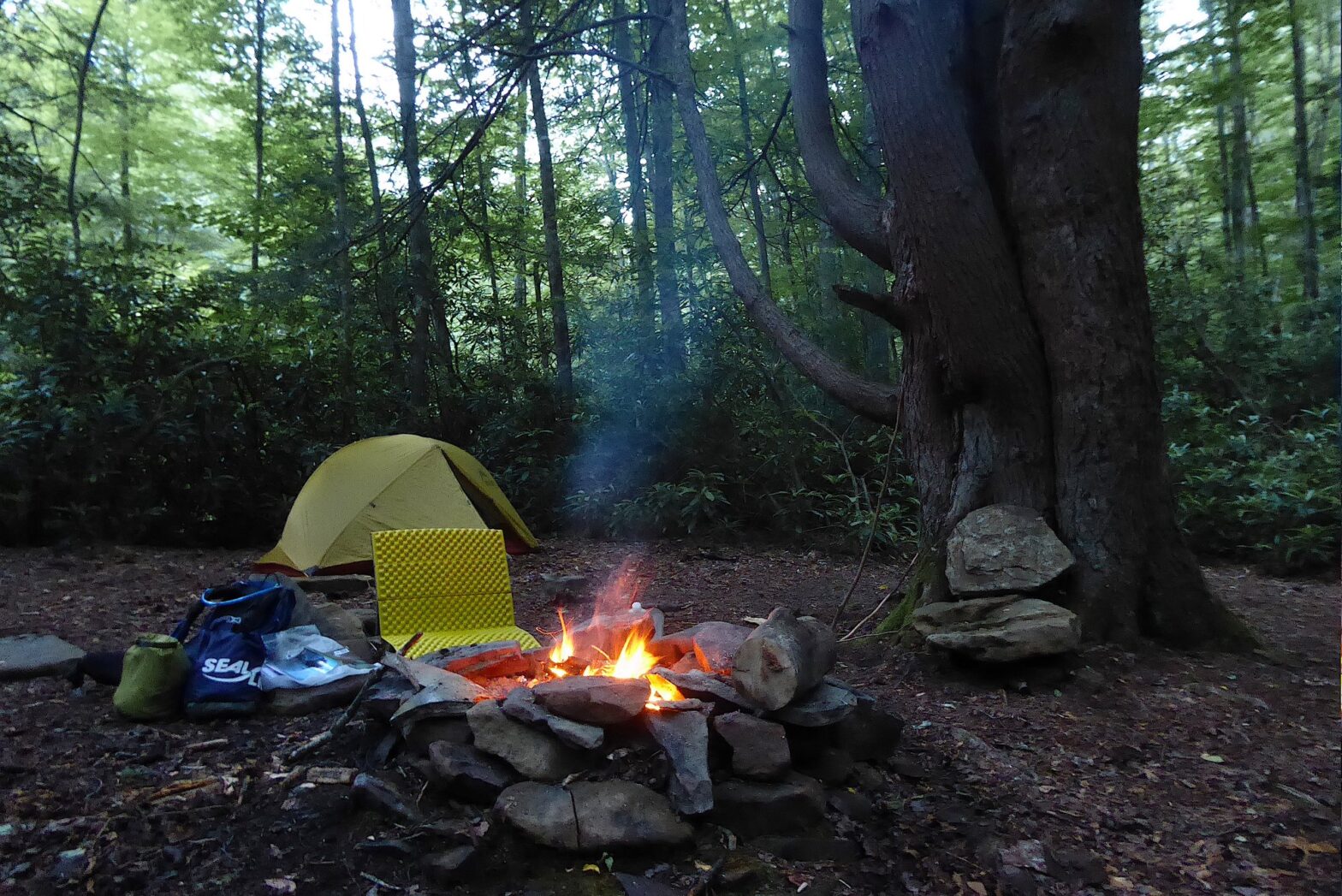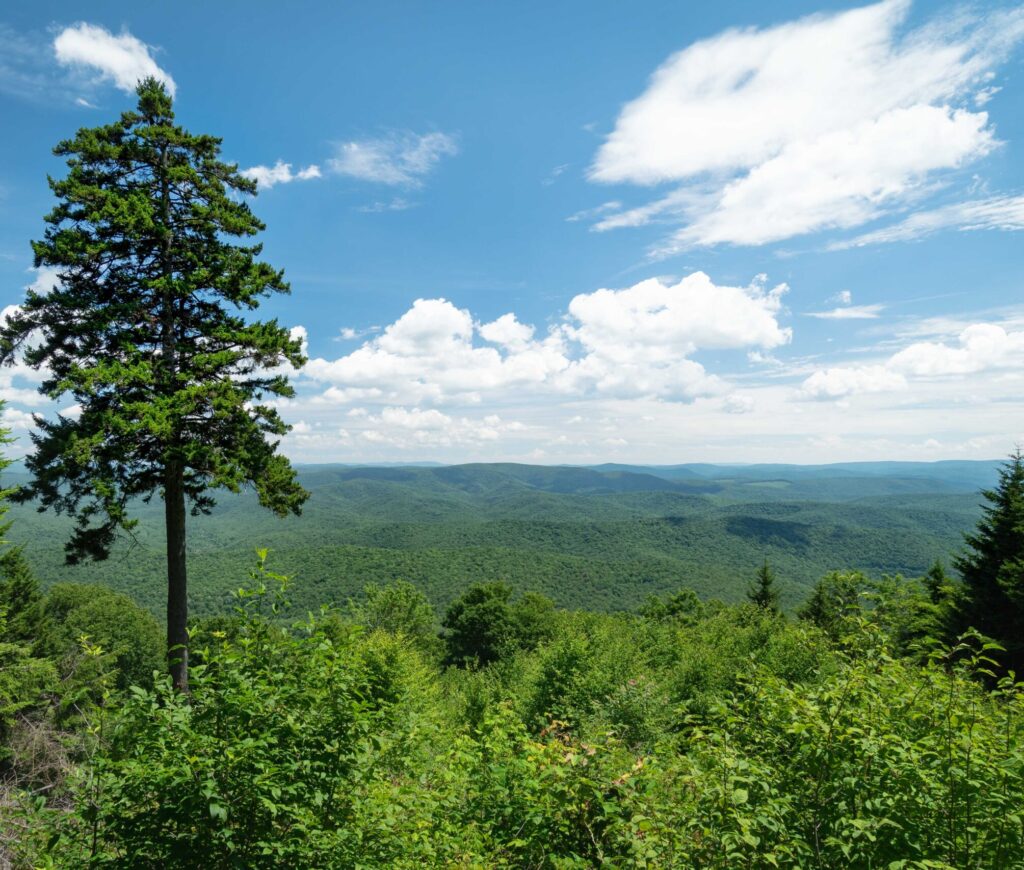 Visitors are drawn to Randolph County, West Virginia for its natural beauty and its abundance of outdoor recreation. Recreational tourism has grown in Randolph County, bringing more visitors to enjoy the mountainous views and appreciate nature, where its easier to avoid crowds and social distance. Because of this, our outdoor spaces like the Monongahela National Forest, designated wilderness areas, and wildlife management areas are seeing more use than ever before. This is a good thing! However, human traffic can have detrimental effects on the environment if people are careless, which is why we feel the need to share with you the “Leave No Trace Principles” so that you can help us protect and care for our precious public land so others who follow can enjoy the same (or better!) outdoors.
Visitors are drawn to Randolph County, West Virginia for its natural beauty and its abundance of outdoor recreation. Recreational tourism has grown in Randolph County, bringing more visitors to enjoy the mountainous views and appreciate nature, where its easier to avoid crowds and social distance. Because of this, our outdoor spaces like the Monongahela National Forest, designated wilderness areas, and wildlife management areas are seeing more use than ever before. This is a good thing! However, human traffic can have detrimental effects on the environment if people are careless, which is why we feel the need to share with you the “Leave No Trace Principles” so that you can help us protect and care for our precious public land so others who follow can enjoy the same (or better!) outdoors.
The seven principles were developed by the Leave No Trace Center for Outdoor Ethics to educate the public on minimizing their impact on the outdoors and to promote responsible outdoor use. Leave No Trace stems from backcountry practices, but the principles are applicable to any outdoor setting ranging from wilderness areas to city parks. Please familiarize yourself with these principles before venturing out on your adventure.
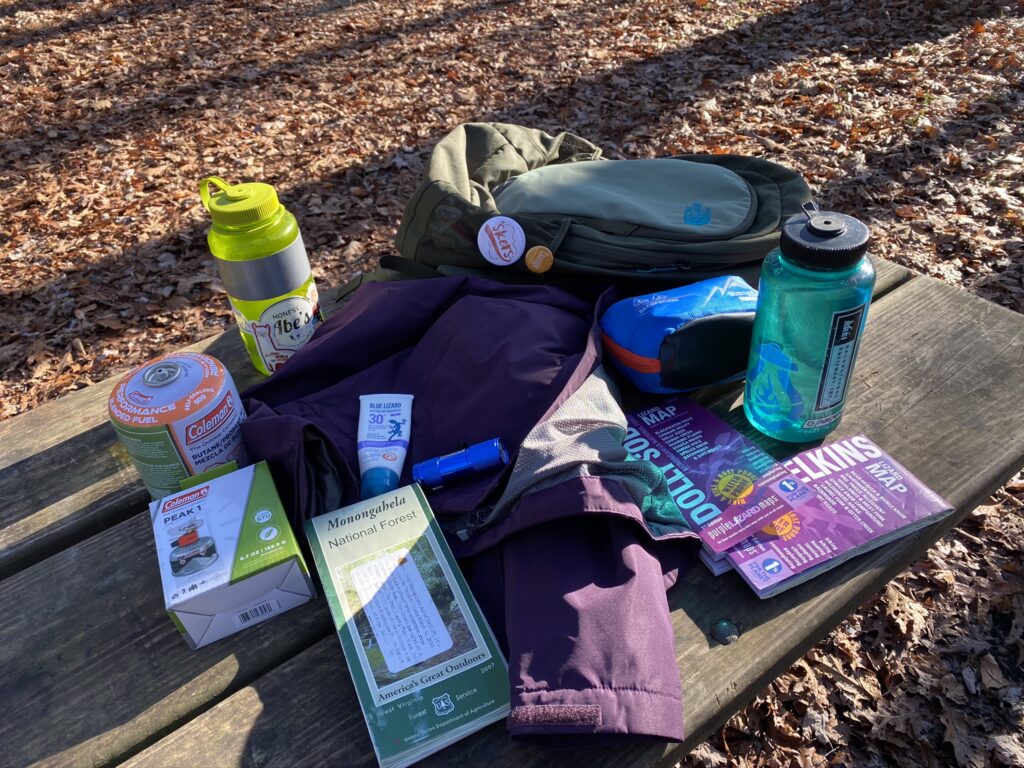 1. Plan Ahead and Prepare: We have all heard the saying, “prior proper planning prevents piss poor performance”. Researching the area, you plan to travel to is extremely important especially knowing the potential hazards you might come across. Ask yourself, is it susceptible to flash floods, exposed to lightning, etc.? If inclement weather happens, what is your emergency plan? Is there access to water or will you need to carry it in? Does the terrain match the abilities of you and your group? What kind of meals will you be making and how will you be cooking them? How do you plan on packing out trash? Always prepare for the worst and hope for the best. Planning and properly preparing will help minimize your impact on the environment and it will make for a much more enjoyable trip.
1. Plan Ahead and Prepare: We have all heard the saying, “prior proper planning prevents piss poor performance”. Researching the area, you plan to travel to is extremely important especially knowing the potential hazards you might come across. Ask yourself, is it susceptible to flash floods, exposed to lightning, etc.? If inclement weather happens, what is your emergency plan? Is there access to water or will you need to carry it in? Does the terrain match the abilities of you and your group? What kind of meals will you be making and how will you be cooking them? How do you plan on packing out trash? Always prepare for the worst and hope for the best. Planning and properly preparing will help minimize your impact on the environment and it will make for a much more enjoyable trip.
2. Travel and Camp on Durable Surfaces: The goal of visiting the outdoors is to travel through natural areas while avoiding damage to the land or waterways. Chances are if you are out exploring in the wilderness, you already have a sense of adventure. It may be tempting to venture off the trail, but you must refrain! It is critical to stay on the designated trails. They are built for a purpose. Staying within the width of the trails, helps with trail maintenance and can also prevent contributing to issues like erosion and the disturbance of vegetation. You should also keep to the trails for safety reasons. It is very easy to get lost off-trail and side paths created by wandering folks can confuse those who follow later on. Always use developed campsites when possible. These have been created to minimize damage to a limited area. If there are no developed campsites, consider which surfaces in the area will be impacted the least. Avoid camping directly next to trails and water. By traveling and camping on durable surfaces, you are doing your part to maintain the integrity of the area you are visiting.
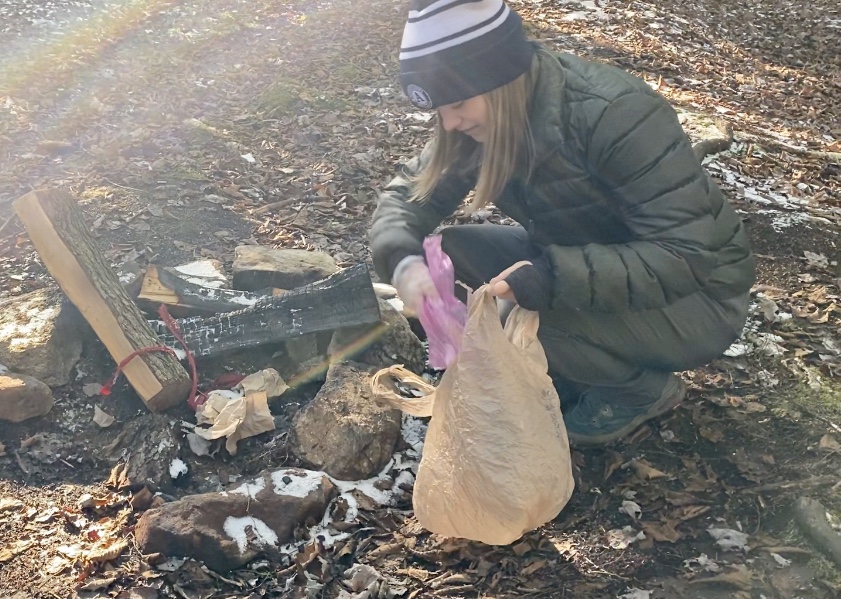 3. Dispose of Waste Properly: It is unfortunate to see waste thrown on the ground when it can easily be avoided. It not only takes away from the beauty of the landscape, but it’s illegal to litter. If available, use trash and recycling receptacles. If not, be prepared to pack your trash out. Put simply, do not be lazy and pick up after yourself. It is a good habit to carry gloves and a garbage bag with you to pick up trash you might find along your adventure. By doing this you can leave the area in a better condition than you found it in. Try to plan meals that produce less waste. Dishes should be washed 200 feet from streams or rivers to prevent polluting the water. In areas where restrooms or vault toilets aren’t available, there are also measures to properly dispose of your human waste. That part can be a bit uncomfortable to think about, but it is one of the most important Leave No Trace principles.
3. Dispose of Waste Properly: It is unfortunate to see waste thrown on the ground when it can easily be avoided. It not only takes away from the beauty of the landscape, but it’s illegal to litter. If available, use trash and recycling receptacles. If not, be prepared to pack your trash out. Put simply, do not be lazy and pick up after yourself. It is a good habit to carry gloves and a garbage bag with you to pick up trash you might find along your adventure. By doing this you can leave the area in a better condition than you found it in. Try to plan meals that produce less waste. Dishes should be washed 200 feet from streams or rivers to prevent polluting the water. In areas where restrooms or vault toilets aren’t available, there are also measures to properly dispose of your human waste. That part can be a bit uncomfortable to think about, but it is one of the most important Leave No Trace principles.
4. Leave What You Find: While you should pick up trash you find, even if you did not generate it, when it comes to other objects you should leave what you find where it is. You can admire plants, wildlife, natural objects, and archaeological artifacts, but don’t take them with you. If you really like what you see, take a picture! Leave them for others to discover and enjoy as you did. In many protected places, such as national parks or historic sites, it actually illegal to remove and disturb natural and cultural objects. Avoid damaging live plants and trees and do not cut branches when building a fire. A good rule of thumb is to use only dead and downed wood but refer to principle 1 and check the regulations of your destination as they will vary place by place.
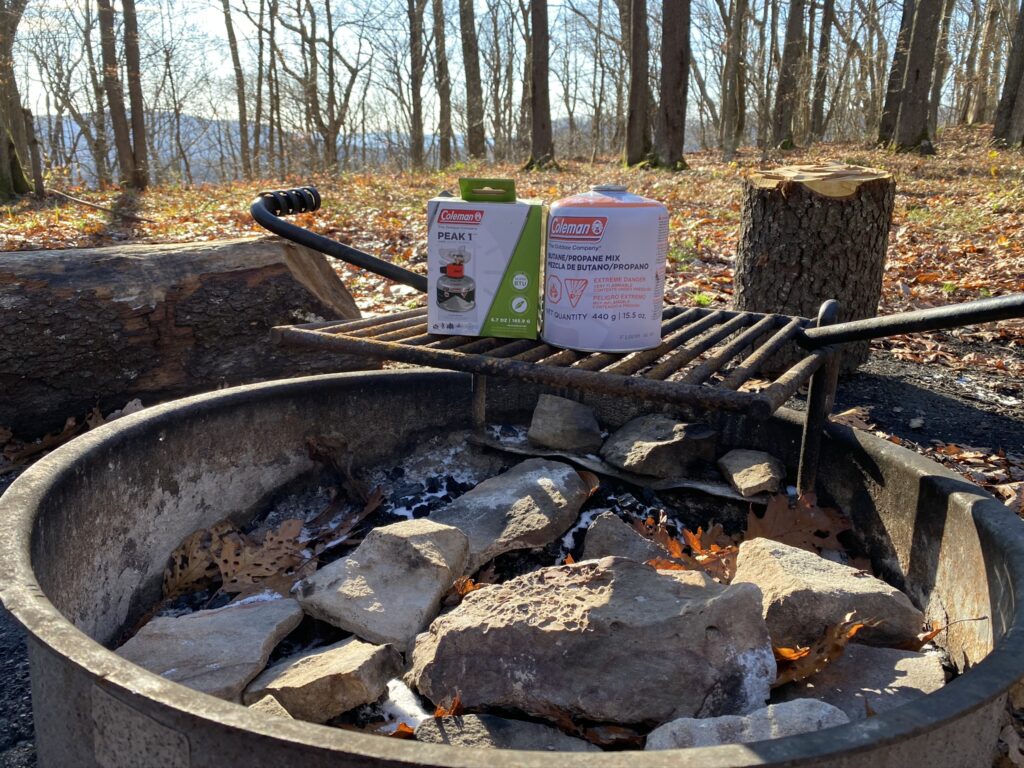 5. Minimize Campfire Impacts: As we suggested above, before building a fire consider the available firewood, fire danger, and restrictions. Use surrounding wood found on the ground. If available, use existing fire rings. Burn firewood until it is ash and then use water to put it out. Depending on where you are traveling to, you may have pack the ash out. One of the best ways to minimize campfire impact is the use of a camping stove. Lightweight single burner stoves are great for backpacking and in wilderness areas. However, we understand that camping just isn’t camping without a fire.
5. Minimize Campfire Impacts: As we suggested above, before building a fire consider the available firewood, fire danger, and restrictions. Use surrounding wood found on the ground. If available, use existing fire rings. Burn firewood until it is ash and then use water to put it out. Depending on where you are traveling to, you may have pack the ash out. One of the best ways to minimize campfire impact is the use of a camping stove. Lightweight single burner stoves are great for backpacking and in wilderness areas. However, we understand that camping just isn’t camping without a fire.
6. Respect Wildlife: For your safety and theirs, do not disturb the wildlife. Observe from a distance and do your best to travel quietly to not scare or force the wildlife to flee, except for when in bear country. Do not feed the wildlife, intentionally or unintentionally. Keep your food secure and pick up garbage and food waste. If you come 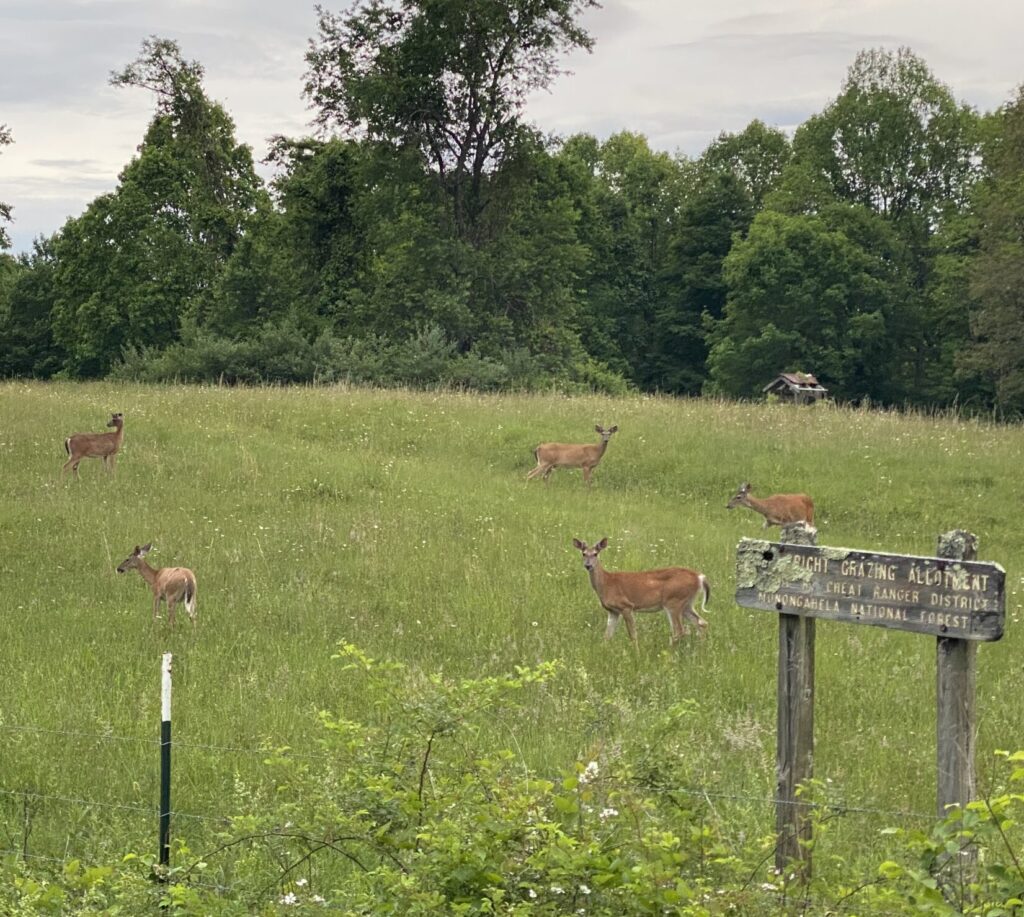 across a sick or injured animal, do not touch it, instead notify the forest service. As we mentioned before camp at least 200 feet from water sources so that animals can access the water. Always respect the wildlife and remember that the outdoors is their home, and you are the visitor.
across a sick or injured animal, do not touch it, instead notify the forest service. As we mentioned before camp at least 200 feet from water sources so that animals can access the water. Always respect the wildlife and remember that the outdoors is their home, and you are the visitor.
7. Be Considerate of Other Visitors: People like to experience the outdoors in different ways, and it is important for you to acknowledge and respect their views. If you are someone who likes to listen to music while hiking, use earbuds to accommodate those who prefer the quiet. To avoid crowds, considering planning your trip in the off-season and avoid holidays and weekends. As far as trail etiquette goes, it is generally assumed that downhill hikers will yield to uphill hikers, hikers will yield to equestrians, and cyclists will yield to both. Both hikers and cyclists should be aware of each other and be sure to announce when passing from behind on the trail. Pets should always be kept under control and owners are required to pick up after their pet.
It is so important to minimize your impact on the outdoors as much as possible. It will ensure the outdoors remain the haven that it is for so many. Get outside and experience the beauty of Randolph County. The responsibility falls on all of us, including you, to care for the public lands. Following the Leave No Trace principles and being a conscious outdoorsman/woman will make Randolph County an enjoyable outdoor experience for everyone.
For more detailed tips on how to minimize your impact visit lnt.org. The Leave No Trace Center for Outdoor Ethics website was used to gather information for this blog. © 1999 by the Leave No Trace Center for Outdoor Ethics
Header Photo Credit // Purple Lizard Maps
